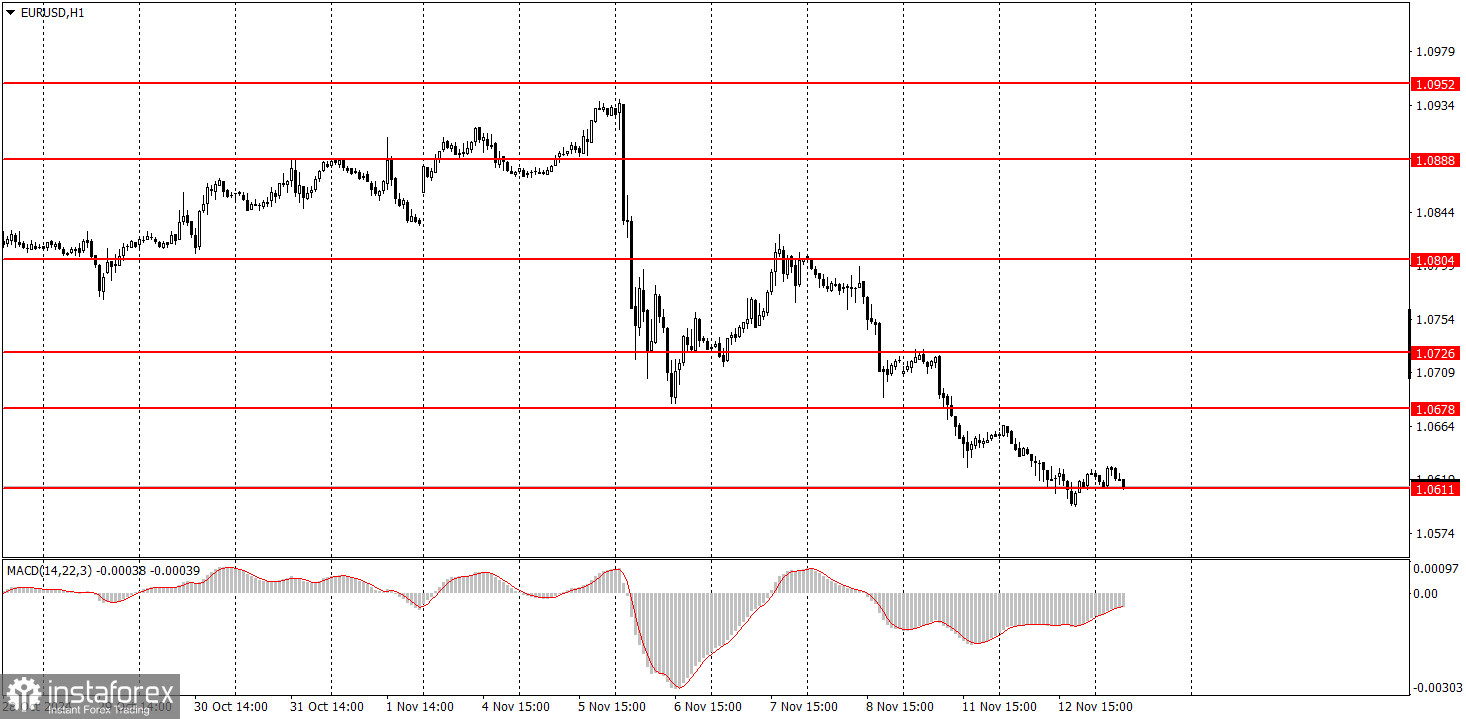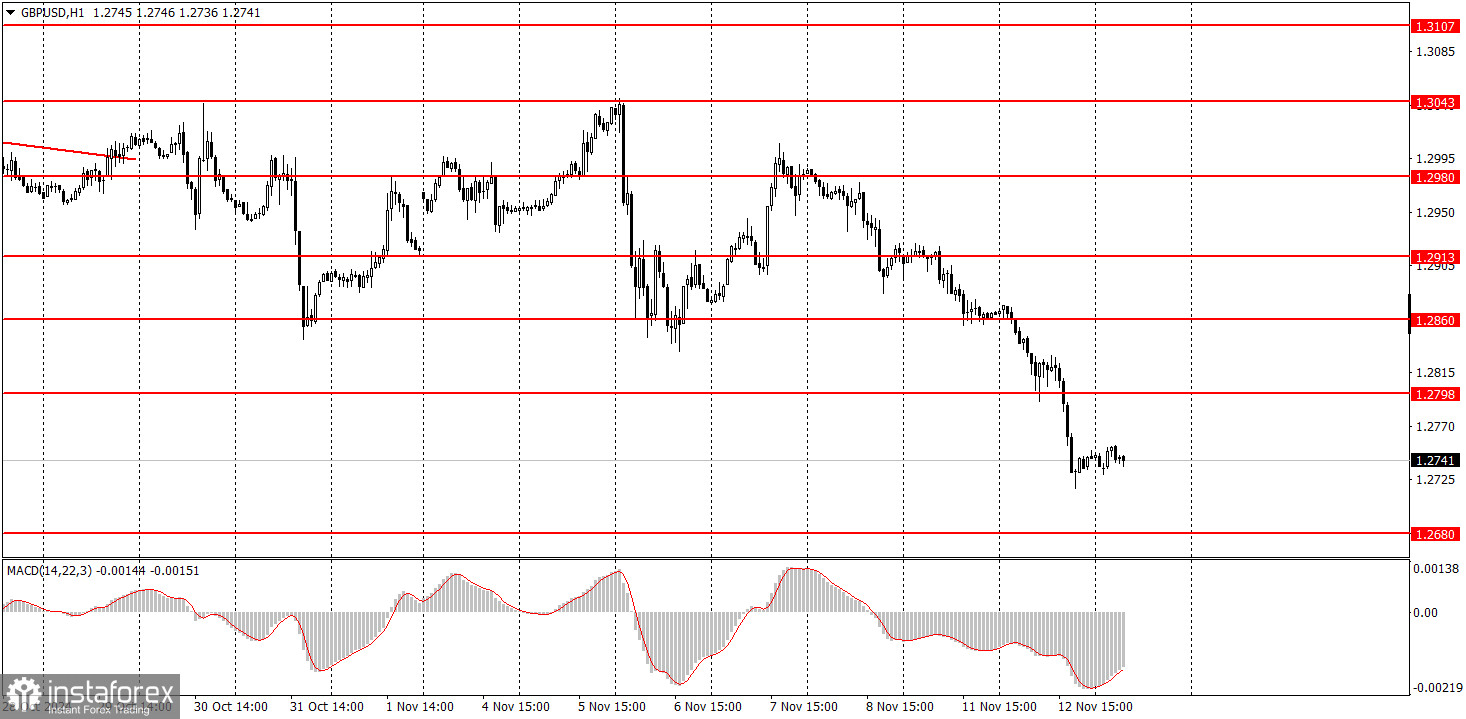Analysis of Macroeconomic Reports:

There are relatively few macroeconomic events scheduled for Wednesday. No significant or secondary reports are expected in the Eurozone or the UK, leaving the spotlight on the U.S. inflation report. This report is set to determine the dollar's fate on the third trading day of the week. The Consumer Price Index (CPI) is expected to accelerate to 2.6% in October, which would be highly favorable for the U.S. currency. We believe the market has already priced in this figure. Thus, a stronger-than-expected inflation increase could trigger further dollar growth, while a lower figure might lead to an upward correction in both currency pairs.
Analysis of Fundamental Events:

Among Wednesday's fundamental events, several speeches from Federal Reserve Monetary Committee members stand out. However, given that the Fed's recent meeting was just last week, these speeches will unlikely offer groundbreaking information. That said, the more evidence of a December pause the market receives, the better the U.S. dollar's performance could be. These speeches will occur after the release of the inflation report, allowing officials to comment on the data, making their statements particularly important.
General Conclusions:
On the third trading day of the week, both currency pairs may continue their decline as the market remains firmly focused on buying dollars. However, the U.S. inflation report could provoke an upward retracement if the figure comes below 2.5%. Core inflation should not be overlooked; a higher figure would similarly increase the likelihood of further dollar strength.
Basic Trading System Rules:
- The strength of a signal is determined by the time it takes to form (whether a bounce or breakthrough of a level). The quicker the formation, the stronger the signal.
- If two or more trades have been made near a level due to false signals, any further signals from that level should be ignored.
- In a flat market, a pair can generate many false signals or none at all. In any case, it's best to stop trading at the first signs of a flat market.
- Trading occurs between the start of the European and middle of the US sessions, after which all trades should be manually closed.
- On the hourly time frame, it's recommended to trade MACD indicator signals only when there is good volatility and a trendline or trend channel confirms a trend.
- If two levels are too close together (5 to 20 pips apart), they should be treated as support or resistance areas.
- After the price moves 15-20 pips in the intended direction, set the Stop Loss to breakeven.
What's on the Charts:
Support and Resistance Levels: Levels that serve as targets for opening buys or sells. Take Profit levels can be placed around these areas.
Red Lines: Channels or trend lines that indicate the current trend and the preferred trading direction.
MACD Indicator (14,22,3): Histogram and signal line—an auxiliary indicator that can also be used as a source of signals.
Major speeches and reports (always found in the news calendar) can significantly impact currency pair movements. Therefore, it's advised to trade cautiously or exit the market during their release to avoid sharp price reversals against prior movements.
Beginners trading on the forex market should remember that not every trade will be profitable. A clear strategy and money management are the keys to success in long-term trading.
 English
English 
 Русский
Русский Bahasa Indonesia
Bahasa Indonesia Bahasa Malay
Bahasa Malay ไทย
ไทย Español
Español Deutsch
Deutsch Български
Български Français
Français Tiếng Việt
Tiếng Việt 中文
中文 বাংলা
বাংলা हिन्दी
हिन्दी Čeština
Čeština Українська
Українська Română
Română

